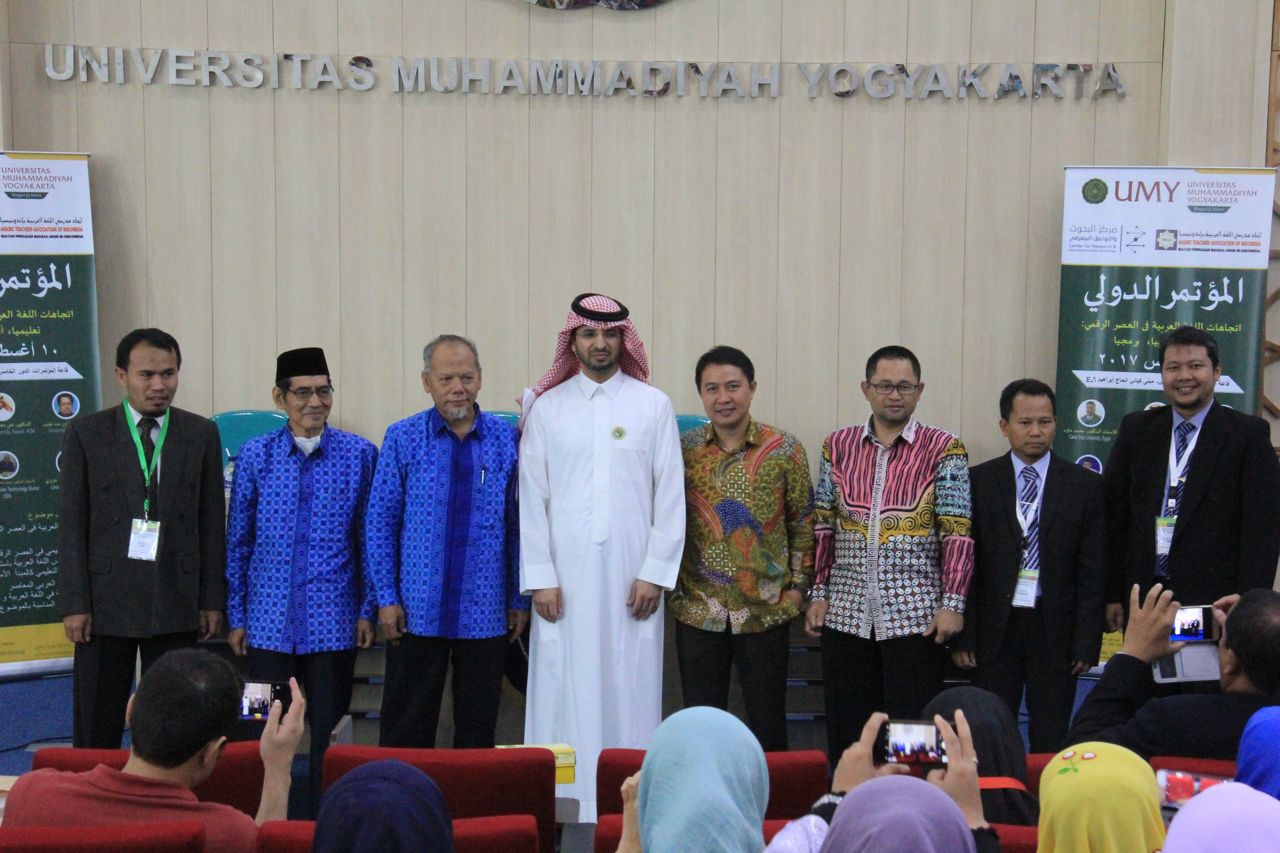The Arabic language in Indonesia was indivisible from Islamic boarding schools and Islamic schools which were areas to learn the language. Sorogan dan bandungan are classical methods of the Arabic language learning at the places. However, the Arabic language now can be learned at a university level. Responding to this digital era, the learning methods should be improved. This circumstance underlay Department of Arabic Language Education (PBA) of Universitas Muhammadiyah Yogyakarta (UMY) to conduct an international conference and call for paper under the theme “Trends of Arabic Language in Digital Era: Education, Literature, and Technology.”
“We understand that improvements of the Arabic language learning method are necessary in an international level. Thus, this international and call for paper aims to initiate technology-based Arabic learning methods. This event is expected to develop the learning system so that, if it is well-established, it can be applied in other fields,” stated Hilman Latief, M.A., Ph.D., Vice Rector of Student, Alumni, Islamic and Muhammadiyah Study Affairs.
To foster the Arabic learning technology, PBA of UMY collaborated with Institute of Applied Technology (IAT) Dubai. “PBA of UMY contributes to the technology development by providing learning materials while the technology design will be developed in Dubai. The result later will be implemented by Arabic teachers in Indonesia. Yesterday we organized a national workshop on the Arabic language learning participated by Arabic teachers from Indonesia, Malaysia, and Singapore,” informed Talqis Nurdianto, Lc., M.A., Head of PBA of UMY. He added that UMY also cooperated with Arabic Teacher Association of Indonesia (IMLA) and Center of Research and Intercommunication Knowledge from Saudi Arabia.
“The synergy is an effort to evolve technology-based Arabic learning and to formulate standardization of the use of Arabic since each area uses the language differently. For instance, the language structure of Fusha Arabic and Amiyah Arabic is dissimilar, so is the dialect among Libya, Oman, Egypt, and other Arabic speaking countries. Hence, Arabic language standard understood internationally is necessary. One of the standardization means is carried out in TOAFL (Test of Arabic as a Foreign Language) approved by all universities in Arabic speaking countries.
In the international conference, a speaker from King Saud University, Riyadh, Saudi Arabia Dr. Ali Mayouf Al Mayouf talked about the importance of an application as technology-based Arabic language learning for children. He believed that the method is essential since children nowadays employ technology intensively.
Besides, there was a linguistic workshop on Arabic Corpus on Friday (11/8). “The Corpus is a group of knowledge of the Arabic language in terms of literature and research. The Corpus will be used to find out forms, functions, and meaning of an Arabic word. For instance, we would like to discover a word of ana (I –ed.). The corpus will show the forms, functions, and meaning of the words in various contexts. This is the first corpus in Indonesia, and denotes our contribution to actualize UMY tagline ‘leading and lightening’,” conveyed Dean of Faculty of Language Education Suryanto, S.Pd., M.Ed., Ph.D.
To make the corpus, there was a team comprising of eight institutions providing material recommendations. The institutions were PBA of UMY, UIN Sunan Kalijaga, UNIDA Gontor, UIN Maulana Malik Ibrahim, Pondok Modern Tazakka, Universitas Al Azhar Jakarta, UNS Surakarta, and IMLA.






